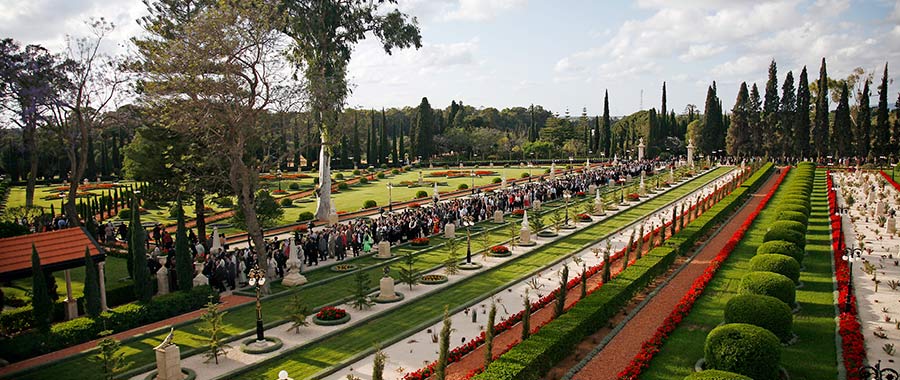As we commemorate the 200th anniversary of the birth of Bahá’u’lláh, the founder of the Bahá’í Faith, it is essential to explore the multifaceted implications of this notable milestone. The teachings of Bahá’u’lláh articulate a visionary framework for humanity. They challenge the prevailing paradigms and urge a collective reassessment of moral, spiritual, and social values. The significance of this bicentennial occasion extends beyond mere historical observance; it prompts a transformative shift in perspective and fosters an inquisitive exploration of our collective destiny.
The core tenets of the Bahá’í teachings emphasize the unity of humanity. This precept posits that despite the superficial differences that may segregate us—be they lines of race, nationality, or religion—there exists an intrinsic bond that unites all people. In an age characterized by unprecedented globalization, the ideals promulgated by Bahá’u’lláh resonate with urgent relevance. They offer a counter-narrative to the divisiveness endemic in contemporary society, calling attention to the shared aspirations and challenges that confront everyone.
Central to the Bahá’í teachings is the concept of progressive revelation. This idea posits that God’s guidance is bestowed upon humanity over successive epochs, delivered through different prophets or Manifestations. Each of these figures has contributed to the moral and spiritual evolution of society, addressing the context-specific needs of their time while simultaneously laying the groundwork for future advancements. The significance of the 200-year mark lies in the acknowledgment of Bahá’u’lláh’s role within this continuum. His contributions have not only redefined the understanding of religious purpose but also articulated a blueprint for societal advancement in the modern era.
Particularly poignant is Bahá’u’lláh’s emphasis on the harmony of science and religion. He asserted that the two must operate in concert, as each domain carries a vital part of the truth. This equilibrium between empirical inquiry and spiritual understanding invites humanity to pursue an integrative approach to knowledge. It promises to satiate the ever-increasing thirst for understanding, rendering the search for truth not merely an intellectual exercise but a deeply spiritual quest. The vibrant interplay between scientific reasoning and faith is pivotal as contemporary society grapples with existential questions around ethics, environment, and technological advancements.
Ethical Considerations in the Modern Context:
Another critical strand woven into the tapestry of Bahá’í teachings is the imperative of ethical development. Bahá’u’lláh called for a reassessment of societal norms and values, urging individuals and communities to cultivate virtues such as justice, compassion, and integrity. As technological advancements proliferate and societal structures undergo rapid transformation, the ethical considerations surrounding these changes grow increasingly intricate. The teachings of Bahá’u’lláh offer a moral compass amid the tumult of innovation and social upheaval. They advocate for a conscientious approach that prioritizes human dignity and welfare, urging stakeholders to consider the ramifications of their decisions on future generations.
The bicentennial observance serves as a clarion call for collective action. It compels individuals to awaken to their responsibilities as stewards of society. As the world becomes increasingly interconnected, the ripple effects of our choices echo beyond geographical boundaries. The dedication to fostering unity and compassion becomes paramount in forging an equitable and sustainable future.
Community Building and Social Development:
Moreover, the Bahá’í teachings place significant emphasis on community building. The framework espoused by Bahá’u’lláh advocates for the establishment of vibrant, inclusive communities that operate on principles of equality and cooperation. This focus on local and global cooperation serves as a powerful antidote to the isolation and fragmentation that can accompany individualistic tendencies. As societies grapple with polarization and discord, the Bahá’í model offers insights into cultivating spaces where diversity is celebrated and collective healing is prioritized.
The spirit of service is also deeply embedded within the Bahá’í teachings. Each individual is viewed as a potential agent of change, endowed with the capacity to contribute positively to the well-being of their community. This empowerment translates into various initiatives aimed at enhancing education, health, and overall quality of life. The active engagement of individuals in service not only strengthens communal bonds but also seeks to address systemic inequities, reflecting the holistic approach of the Bahá’í teachings in fostering social transformation.
Conclusion:
The significance of the 200-year anniversary of Bahá’u’lláh’s birth transcends the confines of historical commemoration. It serves as an invitation to reflect upon the teachings that have emerged from this pivotal figure and to consider their implications for contemporary society. As we navigate the complexities of the 21st century, Bahá’í principles of unity, justice, and ethical living provide a profound framework for reimagining our collective future.
In a world yearning for illumination, the teachings encapsulated within Bahá’u’lláh’s writings beckon us to recalibrate our values and aspire toward a more harmonious existence. The promises contained within the Bahá’í teachings not only encourage inquiry into the essence of our shared humanity but also inspire us to act upon that understanding in transformative ways. As we embark on this journey of exploration and realization, we discover opportunities to ignite curiosity and facilitate a paradigm shift towards a more inclusive and united global society.
